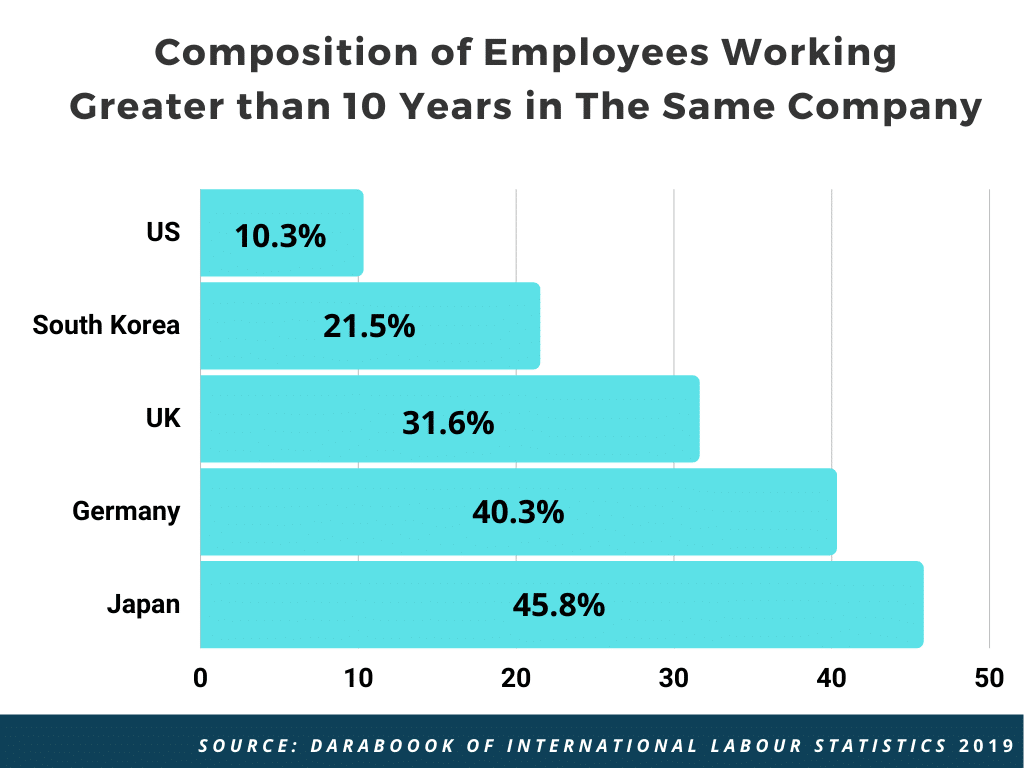Nenko System: A Deep-rooted Social System in Japan
People often say that Japan is a unique country in the world in terms of culture. As an island nation that has historically been able to avoid invasion by enemies, we have evolved in our own way without interacting with the outside world. (That’s why people sometimes call Japan “Galapagos country“.) The most conspicuous of those unique cultures is the seniority system so-called “Nenko System”.
What Is Nenko System?
Nenko System, also known as “Nenko Joretsu” among the Japanese, is a social system. It determines positions and salaries in organisations according to service years and age. The opposite of the Nenko System is a performance-based system which is relatively common in western countries.

But why has it become deeply entrenched in Japan?
How Nenko System Became Standard in Japan
Nenko System seems to have a strong connection with “Syushin Koyo System (= Lifetime Employment)”. As Japan continued to grow during the post-war reconstruction, companies were gradually reluctant to let go of the workers they had trained and began to retain talented people by offering them lifetime employment.
Many companies followed suit, and it became the norm that salary goes up as people get old regardless of whether they give more values. And the payment for veterans became less about rewarding current contributions and more about the appreciation of past achievements.
Furthermore, another primary reason is probably the widespread prevalence of Confucianism in Japan. Confucianism, which emphasises the importance of respecting the elderly, has a very strong affinity with the Nenko System. Therefore, the system is also closely linked to history. But recently, this situation has been changing dramatically.
Is Nenko System Collapsing?
One of the most pressing issues the Japanese government faces is “Work Style Reform”. Since the current system is no longer working properly, many experts are calling for improvements. But why?
Low economic growth rate
Nenko System was a product of stable economic growth. Since the Japanese economy has stagnated for a few decades, people have realised that the system needs updates to a great extent.
Speed of technological innovation
In recent years, technological innovation’s speed has been so rapid. And the cycle that knowledge and methods get outdated has also become so quick. Accordingly, the older generation’s experience has become less and less valuable in business.
Adults Stopped Learning
Japanese adults are said to study the least in the developed countries, which can be attributed to the Nenko System. This is because people don’t have to work hard every day to increase their value in the market in Japan where salaries increase automatically with age. All they need to do is to graduate from a high-rank university and get a job at a famous company.
According to the survey conducted by Education at a Glance in 2016, the proportion of the Japanese aged over 25 enrolled in short-term higher education was the lowest at 4.6%, compared to the OECD countries’ average of 37.4%.
Many young people are trying to revise this system for Japan’s future, and the government is also serious about it. So, there is no doubt that things will gradually change.





I have read so many content concerning the blogger lovers
however this paragraph is in fact a good article, keep it up.
Great goods from you, man. I’ve understand your stuff previous to
and you are just too magnificent. I really like what you
have acquired here, certainly like what you are saying and the way in which you say it.
You make it enjoyable and you still take care of to keep it
wise. I can’t wait to read far more from you. This is really a terrific site.
I was curious if you ever thought of changing the page layout of your website?
Its very well written; I love what youve got to say. But maybe you could a little more in the way of content so people
could connect with it better. Youve got an awful lot of
text for only having one or two images. Maybe you could space it
out better?
Thank you for your comment!
I’ll try putting more images or infographics for better visibility. 🙂
Hi there, I discovered your site via Google even as searching for a similar topic,
your web site came up, it seems to be good. I have bookmarked it in my google bookmarks.
Hello there, just changed into alert to your blog
thru Google, and located that it is truly informative.
I’m gonna be careful for brussels. I’ll appreciate in case you continue this in future.
Numerous other folks will be benefited from your writing.
Cheers!